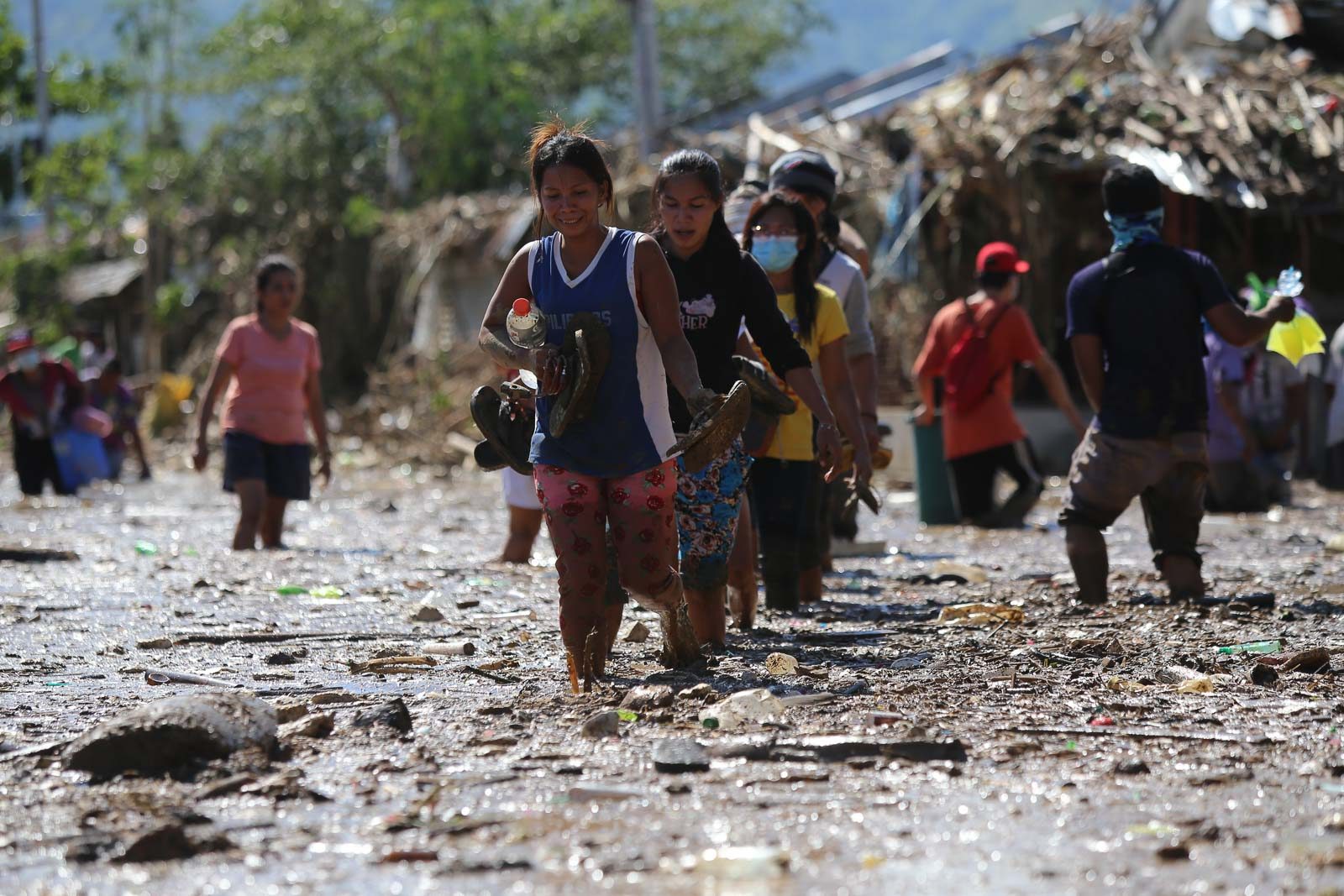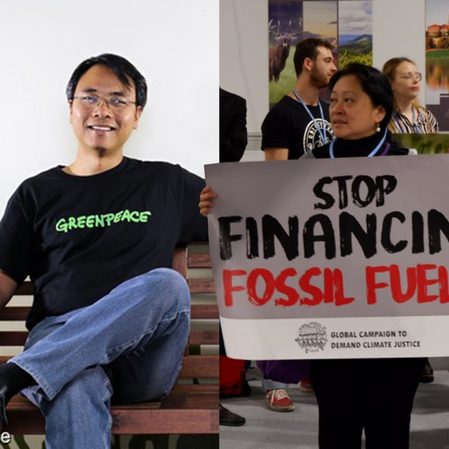SUMMARY
This is AI generated summarization, which may have errors. For context, always refer to the full article.

On Sunday, October 31, the United Nations (UN) climate summit formally opens in Glasgow, dangling a promise that wealthy nations will come to the aid of countries like the Philippines in surviving a hotter planet.
To ensure such assistance is more than lip service, the Philippine government has sent a 19-person delegation – one dominated by finance experts but notably lacking in seasoned climate negotiators.
COP26, as the Glasgow summit is known, is where roughly 200 countries have to decide how much greenhouse gas emissions they can cut and how much richer nations should give to poorer ones who can’t keep up with the already staggering impacts of climate change.
In terms of climate finance, what’s up for discussion is the pledge of developed countries to shell out $100 billion yearly to poor, vulnerable nations. That pledge, made in 2009, has not been fulfilled. Many say the promised amount needs ramping up.
“If we cannot even secure what rich countries owe vulnerable nations, then we are only deluding ourselves or poisoning that trust. What in heaven’s name are we talking about in COP26 without climate finance?” said House Deputy Speaker and longtime climate advocate Loren Legarda on Tuesday, October 26.
The promise of climate funding is intertwined with the other major agenda item in Glasgow – the commitments of countries to cut their carbon emissions to get to the ideal scenario where all of the world’s emissions are absorbed by carbon sinks: net-zero.
The Philippines’ commitment (NDC or Nationally Determined Contribution in climate negotiations-speak) is to reduce its emissions by 75% by 2030.
But the big colatilla in this promise is that 96% of this depends on international assistance. In other words, if the Philippines can’t secure aid from the international community, it would only cut its emissions by 2.71%.
Legarda is one of many voices who wants the government to give a more ambitious NDC. But the government and some climate experts acknowledge that the Philippines accounts for 0.3% of global emissions and shouldn’t have to carry more burdens.
“Those countries that contribute the most to greenhouse gas emissions must bear the greater burden for mitigating the planet’s warming. Those most vulnerable to the consequences of climate change should receive the most urgent support,” said the Philippine head of delegation Finance Secretary Carlos Dominguez III last September 29.
Duterte’s delegation
There is no doubt that the Philippine team will wave the banner of climate justice at COP26 after President Rodrigo Duterte himself has made it his pet climate issue in international summits.
That he picked Dominguez to head the delegation and chair the Climate Change Commission is telling of Duterte’s priorities when talking climate. Another Cabinet member firmly behind Duterte on climate justice, Foreign Secretary Teodoro Locsin Jr., is part of the delegation.
“The delegation represents the President and would have that credibility…. With Dominguez and Locsin there, they will be seen as having the President behind them,” longtime climate advocate and former COP negotiator Tony La Viña told Rappler.
But youth climate activist Jefferson Estela likened the delegation to “dancers being sent to a science quiz bee,” lamenting the absence of Climate Change Commission officials.
Estela, convenor of Youth Strike 4 Climate Philippines, is frustrated that Duterte himself is not among the 100 world leaders attending. This, together with past remarks of the President that climate summits are a “waste of time,” shows the Philippine leader does not prioritize climate change, said Estela.

Leaving behind dirty energy
Even if the Philippines is not a major polluter, it’s still important to have an ambitious commitment to slash emissions to encourage other countries to do more.
The Philippines’ biggest sources of emissions are the energy and transport sectors. Despite forays in renewable energy, the country still heavily relies on oil and coal for power.
At COP26, the delegation is set to launch a plan to retire coal-fired plants in Mindanao, a low-hanging fruit for the government.
“They don’t have that much participation in the grid so we could easily transition them and it’s more doable. So, we’re starting with that and we’re looking into how much it would actually cost, what is the business model, and how do we efficiently transition them,” said Finance Assistant Secretary Paola Alvarez on Tuesday, before she flew to Glasgow.
A complementary effort of the government is to increase the use of renewable energy. The climate financing to be discussed in Glasgow could fill that gap. Bigger emitters, like the United States and the European Union, have already announced more ambitious mitigation plans. China aims to peak emissions before 2030 and will stop funding coal plants abroad.
Protecting communities
But for archipelagic Philippines visited by 20 typhoons a year, an even more important aspect of its climate summit commitment is to help communities weather the impacts of climate change, such as faster sea level rise, stronger typhoons, and droughts.
Where countries like the Philippines can get the resources to do this will also be an important facet of climate finance to be tackled in Glasgow.
On Wednesday, October 27, a panel of Philippine scientists gave a list of to-dos for the government, ranging from setting up real-time weather monitoring in localities and improving access to climate risk insurance programs.
Fishers, farmers, and indigenous peoples are vulnerable to drought, rising sea levels, warmer seas, and intense typhoons because of how tied their livelihoods or way of life are with nature.
Cities and towns on the coast are more prone to the dangers of sea level rise and storm surges, while those in the uplands would more likely contend with landslides from stronger storms.
But Filipinos across the board will not escape the threats posed by climate change to food and water security, given its wide-ranging impact on crops, fish stocks, and water sources.
A landmark report by a UN scientific body said the world is already locked in for worse climate hazards after warming by 1.1 degrees Celsius (ºC) over pre-industrial levels. If emissions aren’t significantly slashed, the planet is set to warm by 1.5ºC sometime in the 2030s.
Hitting that tipping point would bring “extreme events unprecedented in the observational record,” according to that report called the Intergovernmental Panel on Climate Change 6th Assessment Report.
Even if countries were to follow through with their new commitments, the world will still get around 2.4 degrees warmer by 2100, according to Climate Action Tracker.
Because of the huge consequences of failure in Glasgow, Philippine civil society groups are adamant that the government delegation “step up” in negotiations.
Aksyon Klima, a network of local groups, has written to Dominguez, calling for transparency on what positions the delegation will take in the talks.
“Please meet us either online or face-to-face as we are always willing to work for the best interest of the Filipino people,” said convenor Rodne Galicha on Thursday, October 28.
Groups have lamented the lack of consultation by the COP26 delegation. But the finance department said in a press release that the delegation would conduct “regular briefings during COP26.”
As for Estela, he wants the government to know the Filipino youth are paying attention.
“It’s important to show our leaders that we are watching their actions, we are listening to their speeches, and if we hear something that isn’t right, we will call them out,” he said. – Rappler.com
This story was produced as part of the 2021 Climate Change Media Partnership, a journalism fellowship organized by Internews’ Earth Journalism Network and the Stanley Center for Peace and Security.
Rappler is doing live updates and reporting on COP26 in Glasgow. Check this page for our coverage.
Add a comment
How does this make you feel?











There are no comments yet. Add your comment to start the conversation.